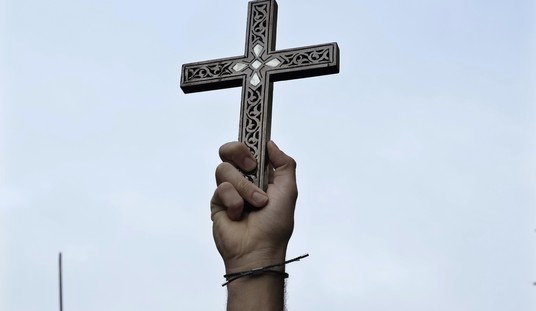Did you know that Iraq already has a pretty good constitution? Neither did I. The details from no less than Bernard Lewis and James Woolsey today’s Opinion Journal:
It was legally adopted in 1925 and Iraq was governed under it until the series of military, then Baathist, coups began in 1958 and brought over four decades of steadily worsening dictatorship. Iraqis never chose to abandon their 1925 constitution–it was taken from them. The document is not ideal, and it is doubtless not the constitution under which a modern democratic Iraq will ultimately be governed. But a quick review indicates that it has some very useful features that would permit it to be used on an interim basis while a new constitution is drafted. Indeed, the latter could be approved as an omnibus amendment to the 1925 document.
This seems possible because the 1925 Iraqi constitution–which establishes that the nation’s sovereignty “resides in the people”–provides for an elected lower house of parliament, which has a major role in approving constitutional amendments. It also contains a section on “The Rights of the People” that declares Islam as the official religion, but also provides for freedom of worship for all Islamic sects and indeed for all religions and for “complete freedom of conscience.” It further guarantees “freedom of expression of opinion, liberty of publication, of meeting together, and of forming and joining associations.” In different words, the essence of much of our own Bill of Rights is reflected therein.
What might be the most intriguing aspect of reviving the 1925 constitution is that it already provides a head of state who could prove tolerable to Iraq’s fractious Sunnis, Shi’ites, and Kurds:
Conveniently, the 1925 constitution provides that the people of Iraq are deemed to have “confided . . . a trust” to “King Faisal, son of Hussain, and to his heirs . . . .” If the allies who liberated Iraq recognized an heir of this Hashemite line as its constitutional monarch, and this monarch agreed to help bring about a modern democracy under the rule of law, such a structure could well be the framework for a much smoother transition to democracy than now seems at hand. The Sunni Hashemites, being able to claim direct descent from the Prophet Mohammed, have historically been respected by the Shiites, who constitute a majority of the people of Iraq, although the latter recognize a different branch of the family. It is the Wahhabis of Saudi Arabia, not the Hashemites, who have been the Shiites’ persecutors.
If the idea of a Hashemite Restoration sounds familiar, it’s because it was a popular one (on certain op-ed pages and in the blogosphere) in the spring and summer of last year. Originally, the talk was about Saudi Arabia, which was originally (and unusually decently) controlled by the Hashemites.
But something tells me Jordan’s Hashemite King Adbullah wouldn’t mind having nephews crowned in Riyadh and Baghdad.










Join the conversation as a VIP Member